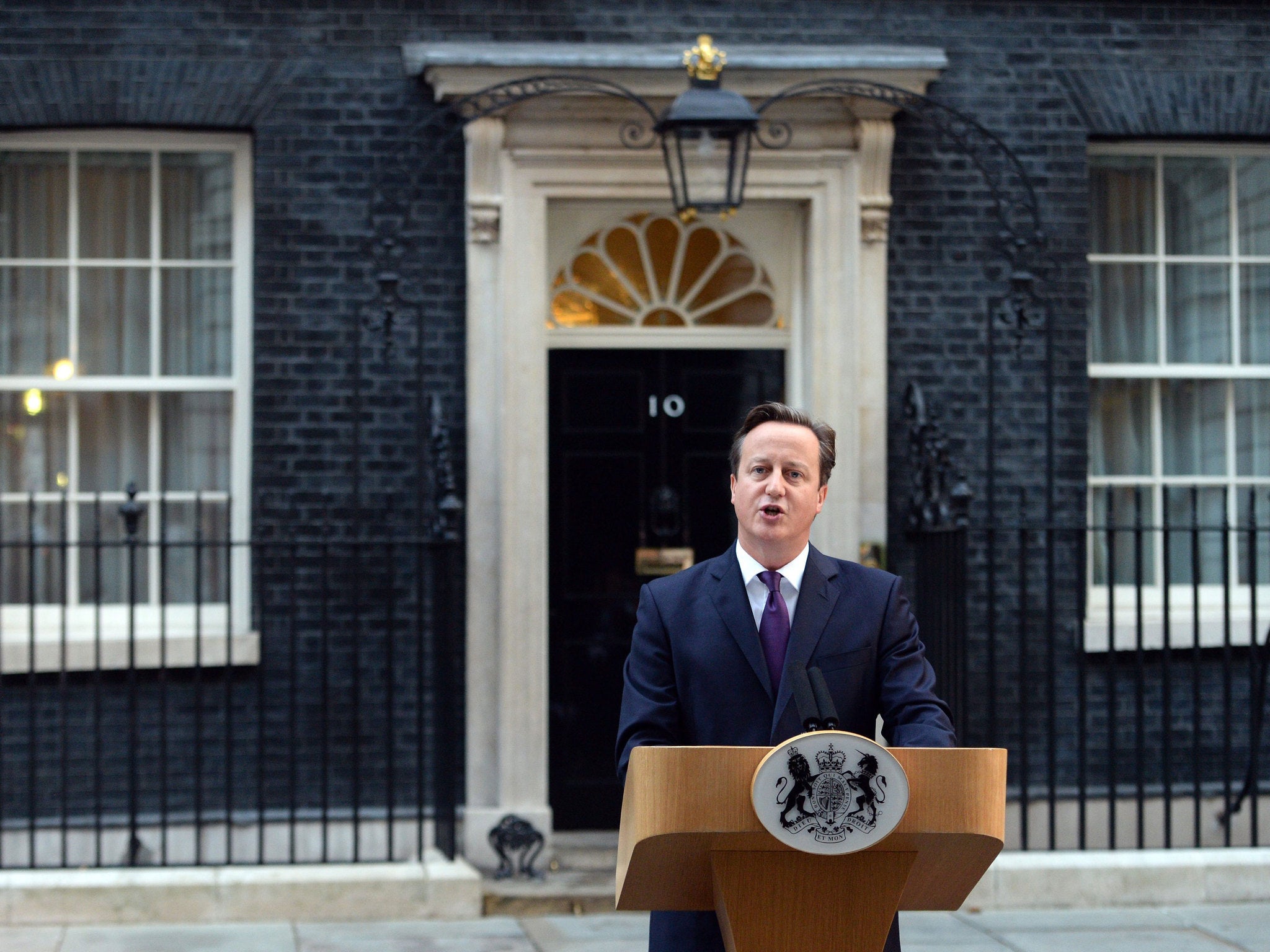Scottish referendum result: Five huge questions David Cameron failed to answer about the future of the United Kingdom

Your support helps us to tell the story
From reproductive rights to climate change to Big Tech, The Independent is on the ground when the story is developing. Whether it's investigating the financials of Elon Musk's pro-Trump PAC or producing our latest documentary, 'The A Word', which shines a light on the American women fighting for reproductive rights, we know how important it is to parse out the facts from the messaging.
At such a critical moment in US history, we need reporters on the ground. Your donation allows us to keep sending journalists to speak to both sides of the story.
The Independent is trusted by Americans across the entire political spectrum. And unlike many other quality news outlets, we choose not to lock Americans out of our reporting and analysis with paywalls. We believe quality journalism should be available to everyone, paid for by those who can afford it.
Your support makes all the difference.He certainly sounded decisive and statesmanlike. Standing outside Downing Street David Cameron declared that the Scottish referendum result had “kept our country of four nations together” and it was time for the United Kingdom now to “move forward”.
He promised that as well as more powers for Scotland to set tax, spending and welfare policy there would also be a new constitutional settlement for the rest of the United Kingdom - or as he put it English votes for English laws.
But the devil, as they say, is in the detail and Mr Cameron didn’t even make a passing attempt to ‘do detail’ this morning. Here are five huge questions he failed to answer.
1. How can you still have "one country" when Scotland is setting its own tax rate and deciding how much to pay people in benefits (as well as controlling the NHS, education and all the other powers Scotland currently has)?
In order to win the referendum, David Cameron, Ed Miliband and Nick Clegg have offered sweeping news powers to Scotland. But there is scant evidence they have thought through the nitty-gritty of the how they would work in practice. Can you really have one national Government based in London when effectively the only UK wide powers they really have are over foreign affairs and defence?
2. What happens if a UK Government is elected next May that does not have a majority of MPs in England?
This could happen very easily if Labour wins power with majority of less than 40 (roughly its current number of Scottish MPs). In the run up to the election Labour will produce a manifesto which covers everything from the NHS, to income tax to schools and welfare payments. But under Cameron’s vague new system they might not be able to pass the laws to make their policies a reality – because they don’t have enough English MPs. So you could have the nightmarish situation where one party effectively governed the UK while another governed England. It is a very real problem Cameron has not even begun to address.
3. Does he want a separate English Parliament?
If Scotland has a Parliament and Wales and Northern Ireland have assemblies why is it only the English that have no representation of their own?
The case for an English Parliament has long been swept under the carpet by Westminster politicians but is now likely to be re-emerge. Mr Cameron would almost certainly be against this option – but what would he do if Ukip decide to latch onto it as a manifesto pledge at the next election.
4. If he doesn’t want an English Parliament how will English votes for English laws work in Westminster?
In 2012 The Government set up the McKay Commission to consider how the House of Commons might deal with legislation that affects only part of the UK, following the devolution of legislative powers to Scotland, Northern Ireland and Wales. It set out a series of complex options for how such a system might work in practice – from a special committee of English MPs to rubber stamp English bits of legislation to full Commons sittings – but only of English and sometimes Welsh and Northern Irish MPs. But the Government has never said what it thought of the recommendations and quietly buried the report. It will now be resurrected – but tellingly Mr Cameron failed to say how he thought the new system should work – if indeed he knows himself.
5 What happens if Labour and the Lib Dems don’t agree with his proposals?
Mr Cameron said two things in his statement. Firstly that the new deal for England would be introduced at the same time as the new deal for Scotland and secondly that he hopes the whole process will take place on a “cross-party basis”.
But it is far from clear that Labour and the Lib Dems will agree with what he wants to do (he plans frankly help the Tories and damage them).
So if he can’t get agreement will he hold up devolution for Scotland and infuriate people who voted No on the basis of what turns out to be a false promise? Or will he push ahead with Scottish devolution and drop his plans for English votes for English laws? Both courses of action are fraught with difficulty and will undermine trust in politics still further North and South of the border.
Join our commenting forum
Join thought-provoking conversations, follow other Independent readers and see their replies
Comments